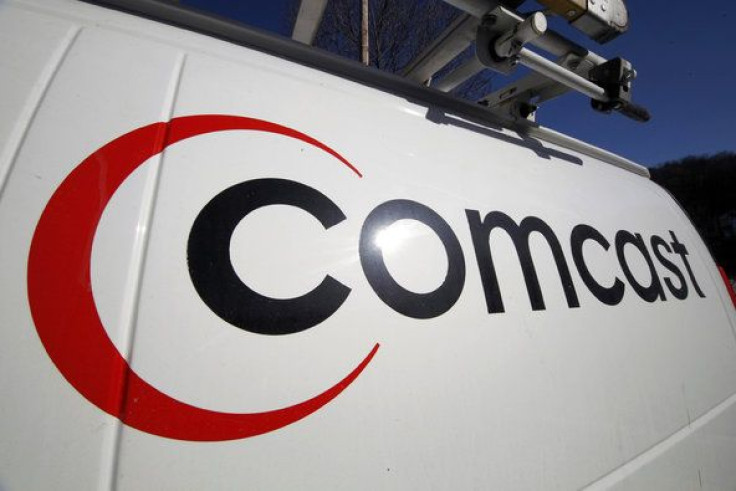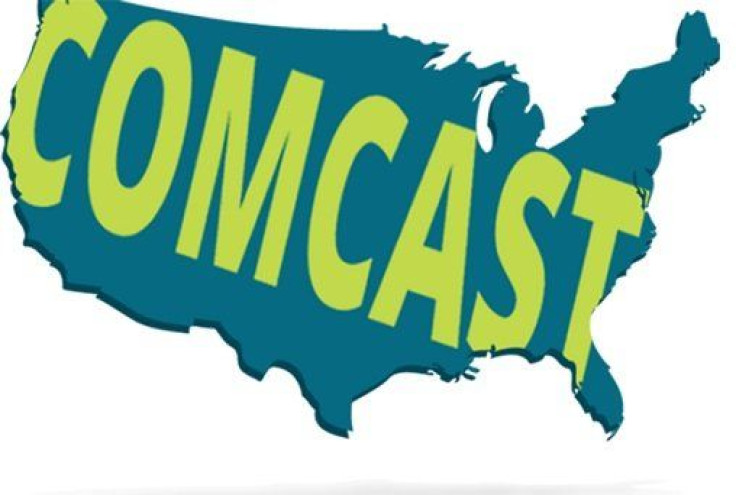Why Small, Rural Cable Companies Are Opposing Comcast's Proposed Takeover of Time Warner Cable

Small, rural cable companies are joining the opposition to Comcast's proposed $45 billion takeover of Time Warner Cable, warning that they, too, will be negatively impacted by the mega merger, even though they operate in places that Comcast doesn’t reach.
That’s because the combined Comcast-TWC could use its increased market power to drive up content costs for competitors, according to Shirley Bloomfield, chief executive of NTCA-The Rural Broadband Association. If that were to happen, Bloomfield said, smaller pay TV providers in tiny towns across America would simply not be able to compete.
“It’s already extraordinarily difficult for these small companies to negotiate and get content,” Bloomfield said in a phone interview Tuesday. “Now you’ve got somebody who’s even bigger and has more market scale, and it’s even going to be tougher.”
NTCA represents about 900 small and midsize telecommunications companies, many of which operate in areas not served by a major provider. Bloomfield said about 70 percent of those companies also offer pay TV packages, even though many of them lose money on the often inordinate programming fees charged by content owners. Some researchers have pointed to skyrocketing content costs -- particularly for popular channels such as ESPN -- as one of the reasons the average cable bill has risen so dramatically.
Bloomfield said it’s a matter of time before something gives, and tilting the balance of power further in the favor of Comcast, which also owns proprietary content through NBCUniversal, would only serve to exasperate a precarious situation for customers in hard-to-reach rural areas. “You wonder where that tipping point is,” she said. “With these programming costs, you just can’t make money.”
Bloomfield said some NTCA companies have only a few thousand subscribers, meaning they hold little sway when negotiating programming fees from the likes of NBCUniversal or Viacom Inc. And if those smaller providers were to go under, there may be no one to replace them. Many operate in areas where the density is so low that major providers have little incentive to invest in the expensive infrastructure required to provide service.
Bloomfield said NTCA companies serve roughly 7 percent of the U.S. population across 46 states. Comcast’s takeover of TWC would give it control of about 30 percent of the pay TV market.
As a way of winning support for its merger, Comcast has expanded its “Internet Essentials” program, which offers high-speed broadband service to low-income families, but Bloomfield said that will do little to help communities where Comcast doesn’t reach. “We really don’t see [the merger] doing much to build out additional infrastructure in some of these markets,” she said.

Strength In Numbers
NTCA is one of three industry trade groups throwing its weight behind a newly formed coalition aimed at convincing the U.S. Federal Communications Commission and the Department of Justice to block the Comcast-TWC merger. The coalition, dubbed Networks for Competition and Choice, is also backed by Comptel, and the Independent Telephone & Telecommunications Alliance. Collectively, the groups represent more than 1,000 businesses.
Asked for comment, Sena Fitzmaurice, a Comcast spokeswoman, said the new coalition is made up of old foes with old arguments. “There’s no real news here,” she said in an emailed statement, “just another group of existing opponents making the same arguments they have already made at the FCC for months, many of which weren’t found to be credible in our past transaction reviews and all of which we’ve refuted directly with evidence in the FCC record. The real facts remain the same: Consumers don’t lose choice in the broadband or video markets. Consumers will see real benefits in faster broadband speeds and better video products -- and a host of other benefits. And there are no transaction-specific harms to this merger.”
Nevertheless, Networks for Competition and Choice is the second industry-backed coalition to form with the express purpose of influencing policymakers who are reviewing the merger. In December, a coalition calling itself Stop Mega Comcast began lobbying efforts in Washington, D.C. Stop Mega Comcast is made up of 27 public interest groups, labor unions and for-profit companies, including Dish Network Corporation and Glenn Beck’s TheBlaze.
On Monday, the new coalition announced its “Don’t Comcast the Internet” campaign and website and said it plans a “vigorous media and advertising campaign including digital and social media platforms.”
Christopher Zara is a senior writer who covers media and culture. Got a news tip? Email me here. Follow me on Twitter @christopherzara.
© Copyright IBTimes 2024. All rights reserved.












